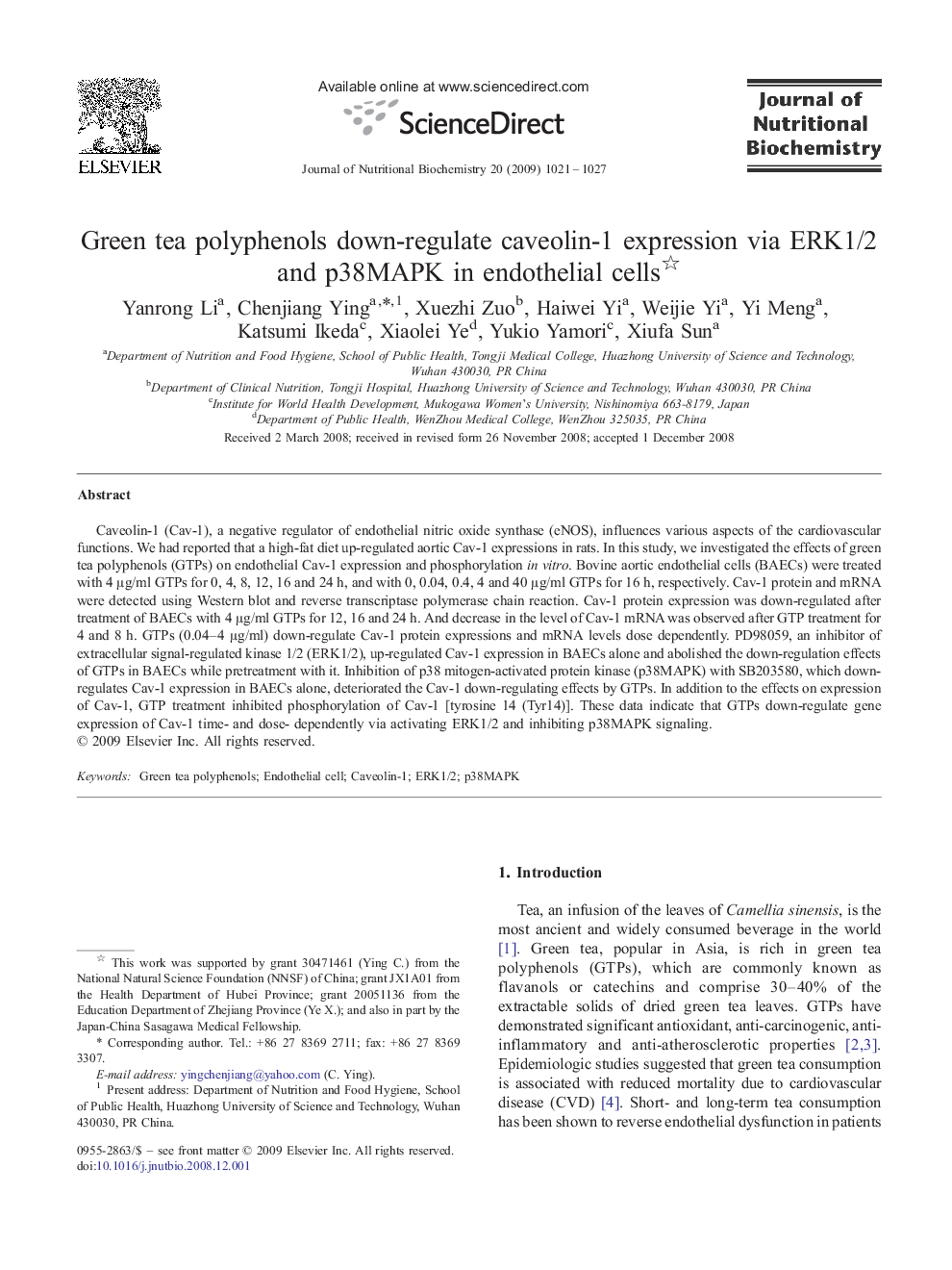| Article ID | Journal | Published Year | Pages | File Type |
|---|---|---|---|---|
| 1990972 | The Journal of Nutritional Biochemistry | 2009 | 7 Pages |
Caveolin-1 (Cav-1), a negative regulator of endothelial nitric oxide synthase (eNOS), influences various aspects of the cardiovascular functions. We had reported that a high-fat diet up-regulated aortic Cav-1 expressions in rats. In this study, we investigated the effects of green tea polyphenols (GTPs) on endothelial Cav-1 expression and phosphorylation in vitro. Bovine aortic endothelial cells (BAECs) were treated with 4 μg/ml GTPs for 0, 4, 8, 12, 16 and 24 h, and with 0, 0.04, 0.4, 4 and 40 μg/ml GTPs for 16 h, respectively. Cav-1 protein and mRNA were detected using Western blot and reverse transcriptase polymerase chain reaction. Cav-1 protein expression was down-regulated after treatment of BAECs with 4 μg/ml GTPs for 12, 16 and 24 h. And decrease in the level of Cav-1 mRNA was observed after GTP treatment for 4 and 8 h. GTPs (0.04–4 μg/ml) down-regulate Cav-1 protein expressions and mRNA levels dose dependently. PD98059, an inhibitor of extracellular signal-regulated kinase 1/2 (ERK1/2), up-regulated Cav-1 expression in BAECs alone and abolished the down-regulation effects of GTPs in BAECs while pretreatment with it. Inhibition of p38 mitogen-activated protein kinase (p38MAPK) with SB203580, which down-regulates Cav-1 expression in BAECs alone, deteriorated the Cav-1 down-regulating effects by GTPs. In addition to the effects on expression of Cav-1, GTP treatment inhibited phosphorylation of Cav-1 [tyrosine 14 (Tyr14)]. These data indicate that GTPs down-regulate gene expression of Cav-1 time- and dose- dependently via activating ERK1/2 and inhibiting p38MAPK signaling.
